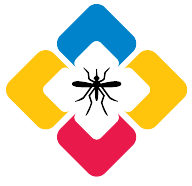History
The Regional Malaria CSO platform was established in 2014 with the initiative of Louis Da Gama and Promboon Panitchpakdi, CSO representatives at the RAI RSC as a CSO constituency understanding the gap of coordination and communication at the national and regional level. It also aimed to address an issue of Malaria vulnerable and at risk population who are always not the priority for the countries due to their legal status or nature of work. Since its establishment platform able to create a network of more than 50 NGO and community-based organizations and network in Thailand, Myanmar, Cambodia, Lao PDR and Vietnam.
Who we are
Regional Malaria CSO platform is a platform for the civil society organization working in malaria and/or serving to the vulnerable population including Mobile and migrant population, ethnic community, forest and farm workers and internally displaced people.
The main purpose of the platform is to provide a common space to the civil society organizations in the GMS especially RAI implementing countries Thailand, Myanmar, Cambodia, Lao PDR and Vietnam for communication, harmonized programmatic interventions, capacity strengthening, promote best practices and coordinated actions for advocacy to address malaria issues of malaria vulnerable and at risk population. This effort is to help community access to services and avoid unnecessary barriers due to policy, discrimination and stigma by reaching out directly to networks that provide services and are managed and run by the community.
Main Goal of CSO Platform
Provide a platform for civil society organizations and community to share best practices, coordinate actions on advocacy, to support improved service delivery to vulnerable populations such as mobile, migrant, underserved populations.
Objectives
- To provide an enabling environment for civil society actors to deliver and advocate for the delivery of adequate services to affected communities currently beyond the reach of mainstream services.
- To ensure a strong ‘last-mile’ response in national and regional elimination programs, thus safeguarding the Global Fund return on investment, and progressing elimination in the hard to reach areas and populations.
- Improving the coordination of CSO actors at all levels, NGO, Ethnic Health Organizations and National Programs and link them with the networks in the GMS region.
- Improving the technical capacity of CSO actors, where they sit outside the capacity building systems of national governments (peer support and formal training).
- Ensure a strong program focus on strengthened community systems through engagement with malaria volunteers (VMW/VHW/MMW/MMV/CHV).
- To bring the unique insight of CSO organizations to malaria elimination efforts, and in doing so, provide a voice to affected communities.
- Envision the forward-looking role of CSOs within the Health security agenda.



